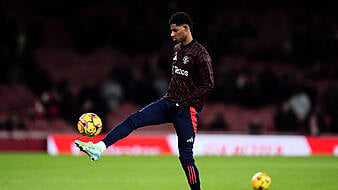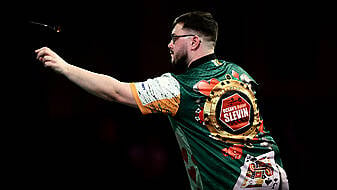Europe’s players are braced for a hostile atmosphere when they attempt to retain the Ryder Cup against the United States at Whistling Straits.
Yet based on what England’s Matt Fitzpatrick experienced during the last away contest at Hazeltine in 2016, things may not be as bad as everyone is expecting.
“It was difficult last time,” Fitzpatrick, who at 22 was the youngest player on either side five years ago, told the PA news agency.

“I only played a foursomes and a singles match. Of course I would have liked to play more, everybody would, and I never really felt like I experienced it in full.
“I was playing with Henrik Stenson, one of the most likeable guys out here, for one. And I didn’t really get too much abuse. I got ‘Did your mum cut your hair?’ and ‘Does your mum cut the crust off your sandwiches?’
“For me it was fine, but I know for other people it was much worse.”

One spectator was indeed ejected from the course for shouting abuse at Rory McIlroy, while reigning Masters champion Danny Willett was a particular target for the galleries after his brother’s ill-advised magazine article before play got under way labelling them a “baying mob of imbeciles”.
The United States went on to whitewash Europe in the opening morning’s foursomes and, although the visitors won five and a half of the next eight available points, they eventually suffered a comprehensive 17-11 defeat.
Six of the last seven Ryder Cups have been won by the home side – with the 2012 ‘Miracle at Medinah’ the sole exception – but Europe’s male players can take heart from the way their female counterparts overcame a similar lack of on-site support to win the Solheim Cup in Toledo earlier this month.
Ryder Cup appearance number ✌️#TeamEurope pic.twitter.com/7XsTDfzVTi
— Ryder Cup Europe (@RyderCupEurope) September 18, 2021
“That’s the disappointing thing, that the US aren’t allowing fans in – well I say fans, they just aren’t allowing people in in general from the UK and EU,” Fitzpatrick added.
“It’s going to be pretty one-sided. It always is, home or away, but it would have been nice to have a few of our own in there.
“But I think that’s what makes it more fun, if I’m honest. You’ve got to put up with that as well and it makes it more exciting, in my opinion. In a way I prefer to play under the hostility.
“It’s an added pressure, an added motivation to try to play well.”







